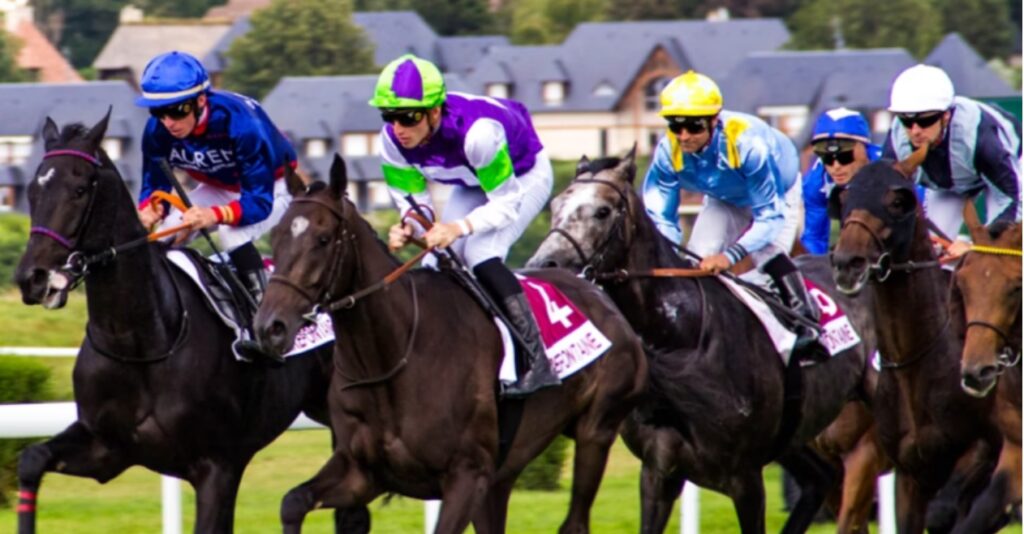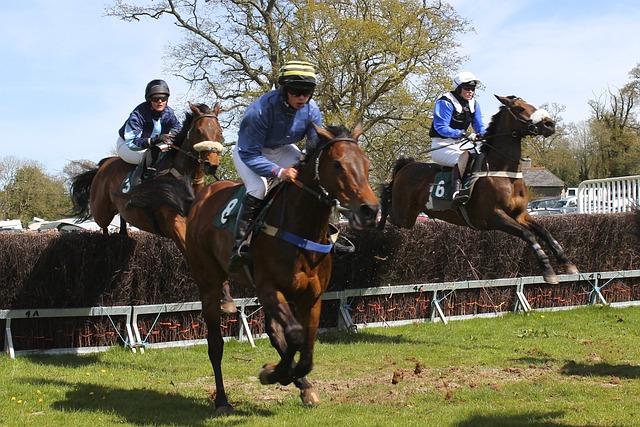
Psychological preparation in equestrian sports is no less important than physical training or technical skills. In a world of high speeds and split-second decisions, mental stability often determines the outcome of a race. Interestingly, even in completely different fields, such as gambling or online entertainment like pay by mobile casino not on gamstop, the ability to control emotions and act calmly plays a key role — and this principle translates directly to sports, where every moment can be decisive.
The psychological stress of being a jockey
Being a jockey isn’t just about riding a horse well, it’s also about the constant psychological pressure that athletes feel from their first training sessions to the moment they cross the finish line.
High level of responsibility for the result
A jockey is responsible not only for their own actions, but also for the safety and performance of their partner — the horse. A mistake in riding can cost not only the victory, but also the health of both participants. In addition, during major races, the trainer, horse owner, and the entire team that worked on the preparation expect maximum results from the jockey. This burden of responsibility forces the athlete to always be in top psychological shape.
Balance between adrenaline and composure
During a race, the jockey experiences a real adrenaline rush. The heart beats faster, every movement of the horse is felt more sharply, and the speed of decision-making increases significantly. However, an excess of emotions can lead to reckless maneuvers. Therefore, one of the main challenges for a jockey is to keep a cool head while controlling a powerful charge of energy and excitement.
Competition and pressure from the public, trainers, and horse owners
Big sports are always competitive, but in equestrian sports, it’s often extra intense. Every race isn’t just a battle against your rivals, but also a test in front of spectators who are there for the show. There’s extra pressure from the ambitions of trainers and horse owners who invest a lot in training. All this creates an emotional environment where any weakness can cost victory.
Mental preparation before competitions
Before big races, jockeys pay special attention to their psychological attitude, as this is what helps them stay focused and perform to the best of their ability when victory is at stake.
-
Many jockeys “run” the race in their heads before they even enter the racetrack. They imagine the start, every turn, the horse’s behavior, and even possible unexpected situations. This visualization helps them form a plan of action and work out their reactions to various scenarios. When a difficult moment arises during a real race, the athlete already has a “mental map” that allows them to act quickly and confidently.
-
Motivation for a jockey is not just a desire to win, but a deep inner understanding of why they are at the starting line. Some are inspired by the desire to break their own records, others by the desire to bring victory to their team or honor traditions. Before a competition, a jockey may repeat key mantras to themselves: “I am confident in myself and my horse,” “We work as one.” These internal formulas create a sense of control and readiness.
-
Before the start, a jockey’s stress level can be very high. To avoid shaking hands, muscle tension, and excessive excitement, athletes use special breathing exercises: deep breaths through the nose, slow exhalations through the mouth, rhythmic breathing while counting. Some practice short meditation sessions, focusing on body sensations and peace of mind.
Working with emotions and fears
A jockey’s psychological stability does not arise on its own — it is the result of systematic work on emotions, the ability to overcome fears and keep oneself under control in any circumstances.
In equestrian sports, falls and technical errors are a reality that even the most experienced athletes face. Fear of these situations can subtly influence decision-making and even riding style, causing jockeys to act too cautiously.
To overcome this barrier, jockeys work on recognizing risks and accepting them as an integral part of the sport. Constant training, repetition of difficult maneuvers, and positive attitudes help build confidence. Competitions often take place in difficult weather conditions or under unpredictable circumstances.
A sudden deviation from strategy, aggressive actions by opponents, or team mistakes can cause severe irritation. However, any emotional reaction during a race can reduce concentration. Jockeys learn to quickly “extinguish” negativity through short breathing exercises, shifting their attention to technique, and controlling their riding rhythm.
In modern equestrian sports, working with a psychologist has become as much a part of training as physical training. The specialist helps the jockey develop individual techniques for relieving tension, fosters positive thinking, and trains stress resistance. The psychologist also helps to work with the “effect of past failures” — situations when failures from previous starts prevent you from believing in your own abilities.
Preparation on the day of the competition
The day of the start is the moment when all the weeks or even months of preparation come together. It is important not only to be physically ready, but also to set your mind and emotions in the right place.
Many jockeys have their own “lucky” rituals that help them get into the right state of mind. This could be a special breakfast, listening to your favorite music, a specific warm-up routine, or even a short walk with your horse. Such habits create a sense of stability and control, reducing anxiety before the start.
On the day of the competition, it is easy to give in to the temptation to watch your competitors: to evaluate their form, tactics, and behavior. However, experienced jockeys know that paying too much attention to others distracts from the main thing — their own strategy. They focus on their plan, technique, and interaction with the horse, leaving the analysis of their opponents to their coaches and team.
The “zone” or flow is the moment when the jockey is fully focused, their movements become automatic, and their sense of time disappears. To enter this state, athletes use various methods: breathing exercises, visualizing the first seconds of the race, repeating key instructions, or taking a few moments of silence before entering the racetrack. This allows them to “turn off” unnecessary thoughts and act with maximum precision and confidence.
Conclusion
Psychological preparation in equestrian sports is not just an addition to physical training, but the foundation on which a jockey’s successful performance is built. The ability to control emotions, overcome fears, tune in to the right mood, and concentrate at critical moments is no less important than technical skills.
Victory often begins long before the starting signal — in the athlete’s mind, in their confidence, in carefully rehearsed mental rituals. That is why champions pay considerable attention to developing psychological resilience, as it helps them withstand pressure, make quick and correct decisions, and maintain maximum efficiency even in the most difficult circumstances.

 Regardless of the horse racing discipline, the quality of the race, and the location, we all know that the best jockeys can make a difference to a race outcome. While some aspects of strategy may differ depending on where the jockey rides, the qualities that the
Regardless of the horse racing discipline, the quality of the race, and the location, we all know that the best jockeys can make a difference to a race outcome. While some aspects of strategy may differ depending on where the jockey rides, the qualities that the  In July, 2023, jockey Adrian Heskin announced that he would be returning to his native Ireland to continue his riding career. Born in Kilworth, Co. Cork on April 22, 1992, Heskin rode his first winner, Mystical Breeze, trained by Michael Hourigan, at Naas in March, 2009. He rode his first winner on British soil, Turf War, also trained by Hourigan, at Ffos Las three months later and, towards the end of the 2009/10 season, completed a notable double for the Co. Limerick handler on New Story in the Glenfarclas Handicap Chase at Cheltenham and Church Island in the bet365 Gold Cup Chase at Sandown Park.
In July, 2023, jockey Adrian Heskin announced that he would be returning to his native Ireland to continue his riding career. Born in Kilworth, Co. Cork on April 22, 1992, Heskin rode his first winner, Mystical Breeze, trained by Michael Hourigan, at Naas in March, 2009. He rode his first winner on British soil, Turf War, also trained by Hourigan, at Ffos Las three months later and, towards the end of the 2009/10 season, completed a notable double for the Co. Limerick handler on New Story in the Glenfarclas Handicap Chase at Cheltenham and Church Island in the bet365 Gold Cup Chase at Sandown Park.